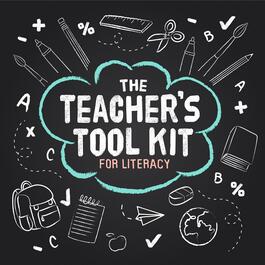
Part 1: The Importance of Teaching Comprehension, F-2 with Diane Snowball
In the latest episode of “The Importance of Teaching Comprehension in F-2 – A Conversation with Diane Snowball,” literacy expert Diane Snowball sits down with Phil to explore why comprehension should be the heartbeat of early literacy, especially in an era dominated by phonics and decoding. Diane passionately explains that teaching comprehension is not something to reserve for later; instead, it should be woven into reading instruction from the very first day a child encounters a book. Diane discusses how comprehension isn’t just about words—it's about engaging young minds in the "who, what, where, and why" of stories, even when they’re just listening. Through read-alouds, children not only hear the words but also experience the deeper mechanics of storytelling. Diane emphasises that read-alouds, like in her example of sharing “Goldilocks and the Three Bears,” invite children to explore concepts of character, setting, and make-believe in an accessible way, building a foundation for thoughtful reading as they progress. As they chat, Diane explains the importance of choosing texts with coherent structures and rich language, helping children develop an ear for narrative flow and language patterns that support comprehension. She talks about the role of varied sentence structures, how listening comprehension aids independent reading, and the vital role that illustrations play in helping young readers visualise and make sense of stories. Diane’s insights remind us that comprehension is far from a passive skill. It’s a dynamic process involving curiosity, connection-making, and critical thinking. With her strategies and thoughtful approach, Diane empowers educators to prioritise comprehension, guiding children to become not just readers, but engaged, thoughtful participants in the world of stories. For more on Diane's insights and practical tips, tune in to this episode and dive into the show notes for additional resources. READ THE BLOG HERE RESOURCESDuke, Nell K., Ward, Alessandra, E. and Pearson, P. David. (2021) The Science of Reading Comprehension Instruction.Duke, Nell K. And The Science of Reading Progresses: Communicating Advances Beyond the Simple View of ReadingKambach, Anna Elizabeth and Mesmer, Heidi Anne. (2024) Comprehension for Emergent Readers: Revisiting the Reading Rope.Melissa and Lori Love Literacy Podcast, Episode 66: Re-thinking the Reading Rope with Nell Duke.Science of Reading: The Podcast, Season 3, Episode 10: Deconstructing the Rope: Language structures with Kate Cain.Sedita, J. (2020, May 16). Syntactic awareness: Teaching sentence structure (part 1). Keys to LiteracyTimothy Rasinski - Fluency RubricTrevor Cairney Blog TEACHIFICQuick Guide to Teaching Comprehension, F-2Picture Books to Read Aloud to F-2 Students JOIN TEACHIFIC NOW AND SAVE!Join Teachific today. Access thousands of resources and a growing number of 'anytime' courses within your membership. FURTHER INFORMATION Tune in to "Teacher's Tool Kit For Literacy," a free podcast where accomplished literacy educator Sharon Callen and her team share valuable insights and tips. With over 30 years of experience, they provide strategic learning solutions to empower teachers and leaders worldwide. Subscribe on your favourite platform for exclusive literacy learning content. Apple, Spotify, Google, YouTubeRead our insightful blogs, which make valuable connections between resources, podcasts and courses.Visit our Cue Learning website and sign up for the Teacher's Toolkit Weekly newsletter to stay updated on resources, events and discover how Cue can support you and your school.Explore Teachific, our vast collection of PDF resources, to enhance your teaching toolkit. And get even more support from our growing number of 'anytime' online courses.Connect with the latest news and other educators by joining our Teacher's Toolkit Facebook groupExplore upcoming live or online webinar events Have questions or feedback? Reach out to us directly at admin@cuelearning.com.au
From "The Teacher's Tool Kit For Literacy"


Comments
Add comment Feedback